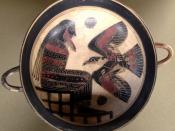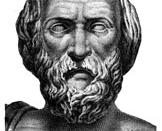There is no doubt of the Spartan existence; however there is the legend of Spartan constitution, a mixture of all pre-existing schemes that holds uncertainty.
The Spartan laws and constitution were supposedly the creation of a man named Lycurgus. There is much controversy and doubt concerning Lycurgus. The origin of LycurgusÃÂ legal reforms and the man himself is wrapped in legend. Is he a man or a myth and how did he embark on the laws for the city-state? The Historians; Plutarch, Xenophon, Plato, Aristotle and Herodotus explore the uncertainties of Lycurgus using historiography.
Plutarch (c. 45-126 AD) was a Greek historian who wrote a series of biographies comparing Greek life to Roman life- illuminating their common moral virtues and failings. In his Life of Lycurgus he brought forth the issue that surrounded Lycurgus- the travels he embarked on, the laws that he supposedly made and the city-state which he founded.
Plutarch detailed the arguments of the period in which Lycurgus lived ÃÂin general nothing can be said which is not disputed.ÃÂ (Plutarch) Plutarch informs us that Aristotle- (c. 4th century BC) a Historian devoted to the constitution; had the opinion that Lycurgus thrived in the time of Iphitus and jointly ÃÂcontrived the order for the cessation of arms during the Olympic GamesÃÂ (Plutarch). However, Apollodorus (c.180BC) a Greek grammarian and Eratosthenes (c.276-194BC) a mathematician, geographer, and astronomer; declared he was more ancient than the Olympic Games by calculating the succession of the Spartan kings. Plutarch also examined Timaeus (c.345-250 BC), an ancient Greek Historian, who devoted much attention to chronology. He had the theory of more then one LycurgusÃÂ- ÃÂÃÂ there were two Lycuguses at Sparta at different times and that to one of them the achievements of both were ascribed.ÃÂ (Plutarch) There was speculation to say Lycurgus lived long...


